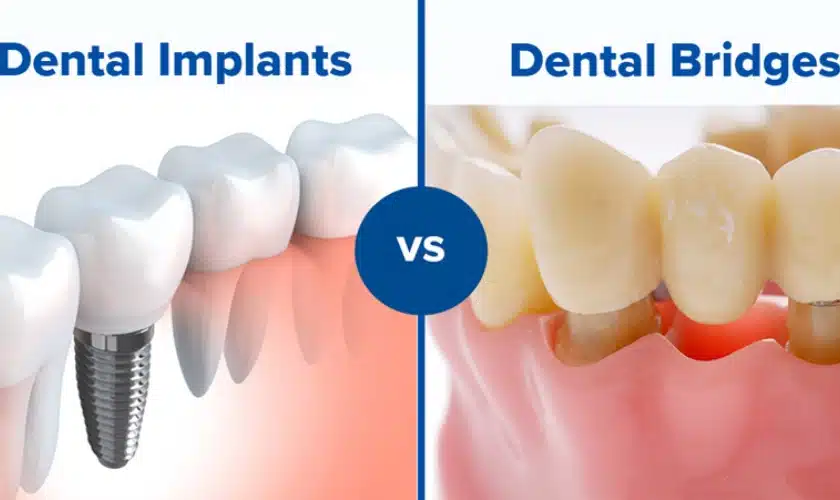Some Known Facts About Dental Sense.
Table of ContentsThe Single Strategy To Use For Dental SenseSome Ideas on Dental Sense You Should KnowDental Sense - TruthsDental Sense Fundamentals Explained
are medical gadgets surgically implanted into the jaw to bring back a person's capacity to eat or their look. They supply assistance for fabricated (phony) teeth, such as crowns, bridges, or dentures. When a tooth is lost because of injury or illness, a person can experience problems such as rapid bone loss, malfunctioning speech, or changes to eating patterns that lead to discomfort.Dental dental implant systems include a dental implant body and oral implant joint and may also consist of a joint fixation screw. Wisdom tooth cavity. The dental implant body is operatively placed in the jawbone in place of the tooth's origin. The dental implant joint is normally attached to the dental implant body by the abutment addiction screw and prolongs with periodontals right into the mouth to sustain the connected artificial teeth
(https://allmyfaves.com/dentalsense1?tab=Dental%20Sense)Framework of The Oral Implant System choosing dental implants, talk to your dental service provider concerning the possible advantages and dangers, and whether you are a prospect for the procedure. Things to think about: Your general health and wellness is an essential consider figuring out whether you are a great candidate for dental implants, how much time it will require to recover, and the length of time the implant may stay in place.
Smoking may affect the healing process and lower the long-term success of the dental implant. The healing process for the dental implant body may take a number of months or longer, during which time you generally have a short-term abutment instead of the tooth. the dental implant treatment: Very carefully comply with the oral health instructions offered to you by your oral supplier.
The smart Trick of Dental Sense That Nobody is Talking About
Implant failure can cause the need for an additional operation to fix or replace the dental implant system. Restores the capability to eat Restores aesthetic look Helps maintain the jawbone from reducing due to bone loss Protects the health of the surrounding bone and periodontals Helps keep nearby (neighboring) teeth stable Enhances top quality of life Damages to bordering natural teeth throughout implant placement Injury to the surrounding cells throughout surgical procedure, such as sinus perforation Injury during surgical procedure (for instance, crack of bordering jawbone) Poor function, such as seeming like the teeth do not bite together usually An experience that the tooth hangs or twisting in location arising from a joint screw loosening Implant body failure (looseness of the implant body) due to systemic infection, which may be most likely in patients with unrestrained diabetics issues due to neighborhood infection in bone and gums supporting the dental implant body due to postponed healing, which might be more probable in individuals who smoke Trouble cleansing the periodontals around the implant, resulting in poor oral hygiene Untreated periodontal condition Post-surgical numbness due to nerve impingement or damage Always inform health and wellness care providers and imaging specialists that you have dental implants prior to any kind of magnetic vibration imaging (MRI) or x-ray procedures.
FDA is not familiar with any unfavorable events reported for MRI or x-ray procedures with oral implants. Dental implants systems are usually made from products that comply with worldwide consensus standards of the International Company for Standardization (ISO) or ASTM International. These criteria have details of what makes a safe material.

An oral implant is a structure that replaces a missing out on tooth. With screw-like tools, the surgeon inserts an implant right into the jawbone, and it acts as a support for a synthetic tooth, called a crown.
Not known Details About Dental Sense
Some individuals are not qualified for oral implant surgery. It is for dental specialists to operate individuals with: intense illnessuncontrollable metabolic diseasebone or soft cells disease or infectionIf these issues are fixed, an individual can have the surgical treatment. In, oral specialists abstain from operating people with: If people with any one of the above undertake oral implant surgical procedure, there is a greater danger of the implant falling short.

Oral implant surgical treatment is a customized procedure. It's not the same for everyone. However the adhering to gives a basic review of what you can expect your dental practitioner, dental doctor, periodontist or prosthodontist to do: Place the implant operatively. Offer you time to recover. Attach the article and final crown, bridge or denture.
Next, your surgeon will carefully place the oral implant right into your jaw. If your implant is near the front of your mouth, your dentist will certainly make a short-lived tooth for you to put on up until you heal.
The Only Guide to Dental Sense
Your copyright can tell you what to anticipate in your scenario. During the recovery phase, your jawbone needs to fuse to the oral implant. This process, called osseointegration, is critical for security and long-term success. This process can take anywhere from 3 to 9 months. Sometimes, it may take much longer.
As soon as your implant heals, your dental practitioner can connect the joint (tiny port blog post) and your last repair (crown, bridge or denture). This usually takes regarding blog one hour to finish and might require a second minor surgical procedure. You shouldn't feel any kind of pain during your oral implant treatment because your supplier will certainly use medicine to numb your gum tissues.